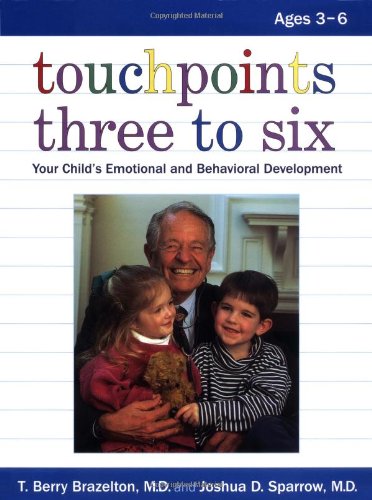For decades, new parents have relied on Dr. Brazelton's wisdom in such beloved best sellers as Infants and Mothers and Touchpoints . But all "Brazelton babies" grow up. Now at last, the internationally famous pediatrician, in collaboration with an eminent child psychiatrist, has brought his unique insights to the preschool and first-grade years. In his warm, funny, empathic tone, he again listens to the child's perspective while also showing his characteristic compassion for the parents' feelings.Parents will welcome the unique features of this important new guide. First the authors profile four very different children, followed throughout these years in a delightful and revealing narrative that applies the touchpoints theory to each of the great cognitive, behavioral, and emotional leaps that a child makes from ages three through six. The second part of the book, arranged alphabetically by topic, offers guidance to parents facing contemporary pressures and stresses, such as how to keep a child safe without instilling fear, countering the electronic barrage of violent games and marketing aimed at children, coping successfully with varied family configurations, shifting gender roles, over-scheduling, competition, and more. A Merloyd Lawrence Book
